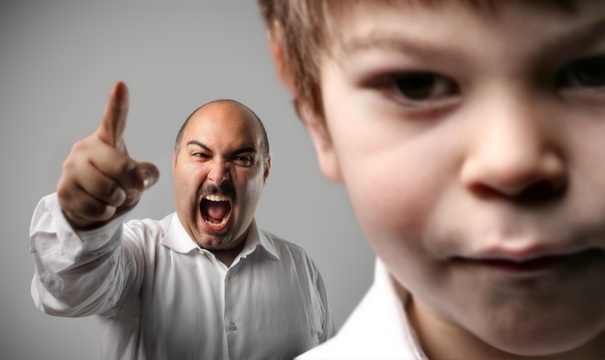 Sometimes our kids push our buttons. Sometimes (most times?) we’re exhausted. Sometimes the demands of parenting exceed our capacity to cope. And sometimes, as a result, we yell at our kids. And as you may have found – yelling doesn’t help anyone. It often makes us feel terrible, and our children are likely to yell back, cry, or stare at us with wide, frightened eyes. What it doesn’t do is make our children suddenly stop the behaviour that is undesirable and act more appropriately. And if it does, it's because they are scared of us. What can you do when you realise you have lost control and are yelling at your kids? 1. Stop. 2. Take a few steps back and take some deep breaths. 3. If the children are safe and your emotions are still running strong, leave the room and let your anger subside. 4. Don’t dwell on what’s happened. Forgive yourself and go to your child. You can turn this into a valuable lesson for both of you. 5. Apologise. Something like: “Hey, sweetheart, I’m so sorry I yelled at you. That was pretty scary, huh?” or: “I got very angry and didn’t use my words the way I should have. I’m sorry.” 6. Ask your child: “Instead of yelling, what could I do next time when I’m feeling angry?” Brainstorm better alternatives with your child. Ideas might include: taking deep breaths, hitting a pillow, walking away, counting to 10. 7. When everyone is calm, discuss with your child the reason for your anger. Having this conversation when emotions are more settled will result in a more rational, productive discussion. So, after your flip out you can actually model to your child the following things: 1. How to calm yourself when angry. 2. How to apologise and acknowledge that your behaviour wasn’t the best way to solve the problem. 3. How to problem solve and generate appropriate alternatives to yelling that your child may then apply themselves when they are feeling angry. We are all human and don’t always parent the way we imagined we would pre-kids. But demonstrating how we can make mistakes and learn from them is a valuable life skill for our little cherubs.
Aimee
23/1/2014 03:25:31 am
Great advice - thanks! Comments are closed.
|
Categories
All
|
Hopscotch & HarmonyAt Hopscotch & Harmony Psychology, you can expect compassionate care and evidence-based guidance on your journey to wellness.
With clinics in Werribee and Belmont, as well as providing online counselling to clients who live throughout Australia, our dedicated team of psychologists and dietitians are committed to providing support to children, teenagers and adults. With a focus on understanding your unique needs, we offer tailored solutions to foster growth and resilience. Trust in our experience and dedication as we work together towards your well-being. Welcome to a place where healing begins and possibilities abound. |
Our services |
Contact usHopscotch & Harmony
Child, Teen and Adult Psychology Our Locations:
WERRIBEE: 1/167-179 Shaws Rd
BELMONT: 92 Roslyn Rd AUSTRALIA-WIDE: Online counselling |
Hopscotch and Harmony respectfully recognise the Aboriginal and Torres Strait Islander people as the first Peoples of the continent now called Australia.
We acknowledge the Bunurong and Wadawurrung people of the Kulin Nation, the traditional owners of the land on which we work, and pay our respects to their Elders, past, present and emerging.
© 2024 Hopscotch and Harmony Pty Ltd

 RSS Feed
RSS Feed
